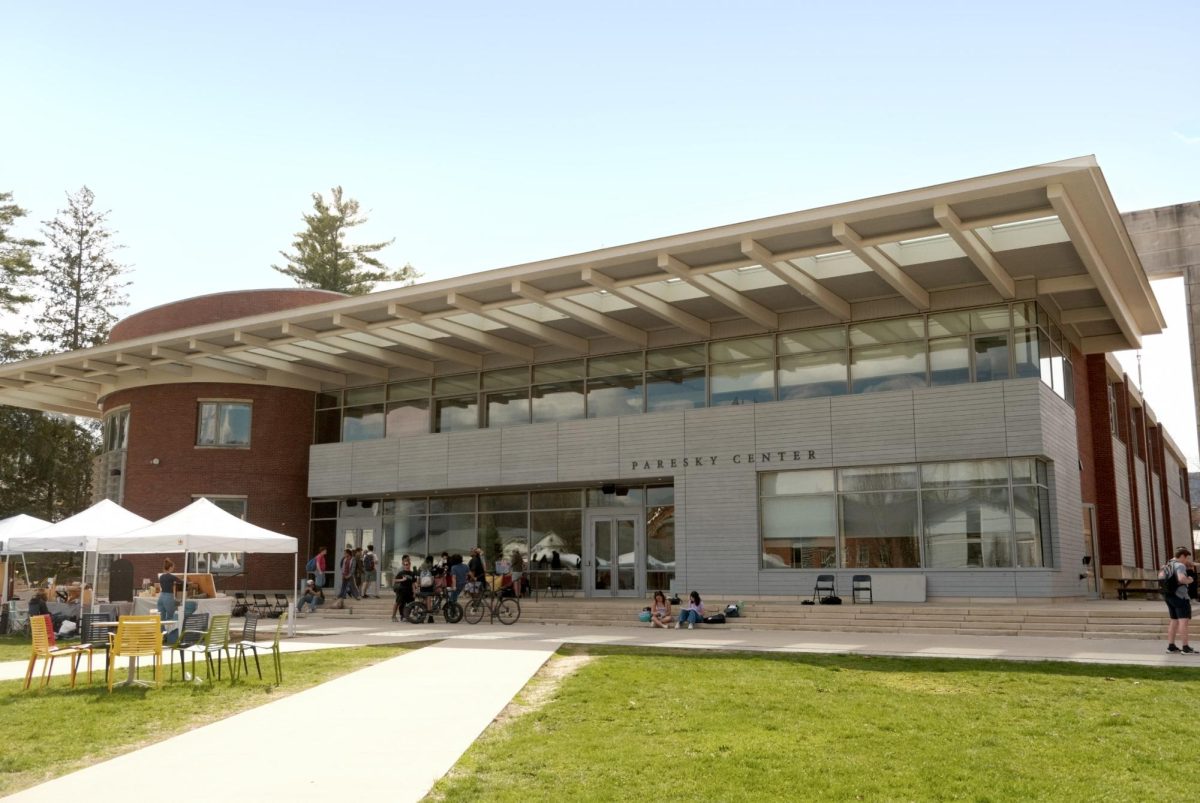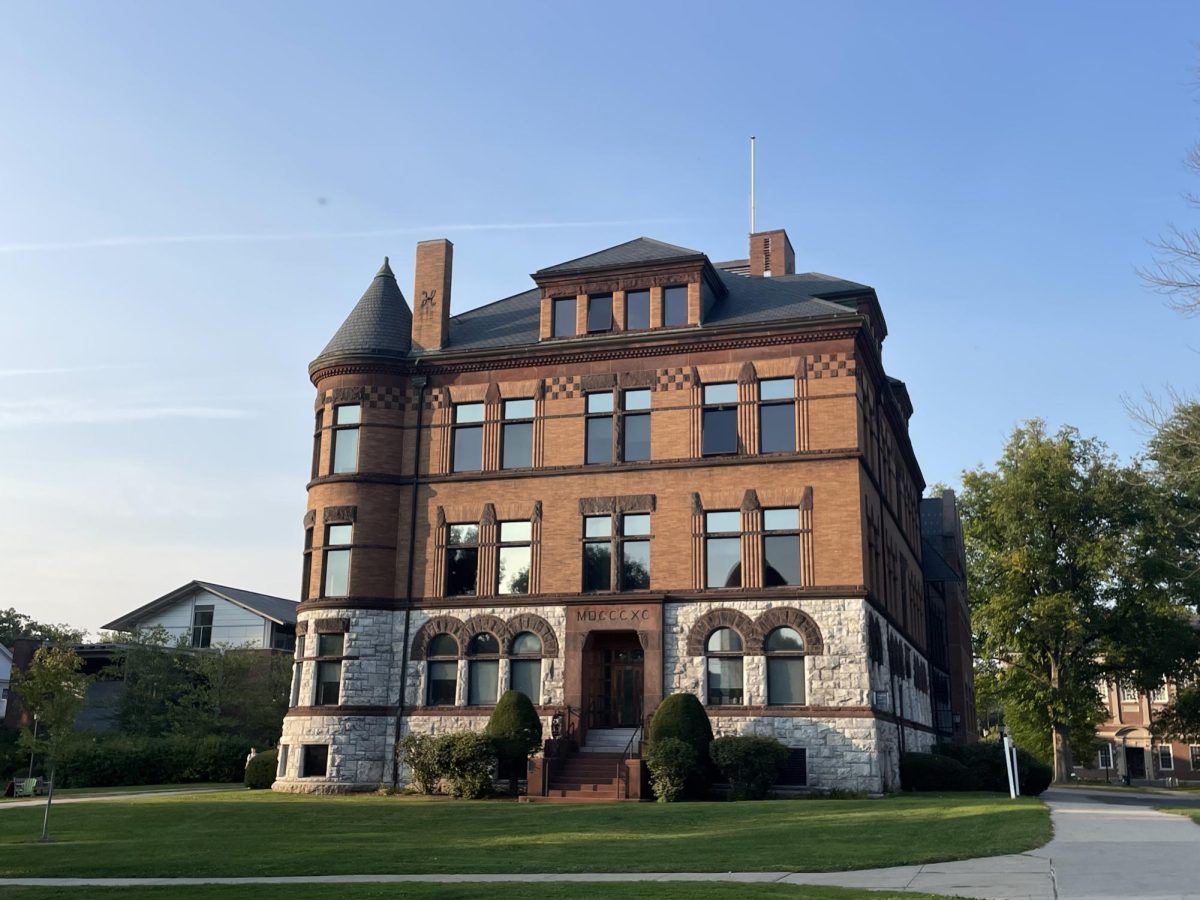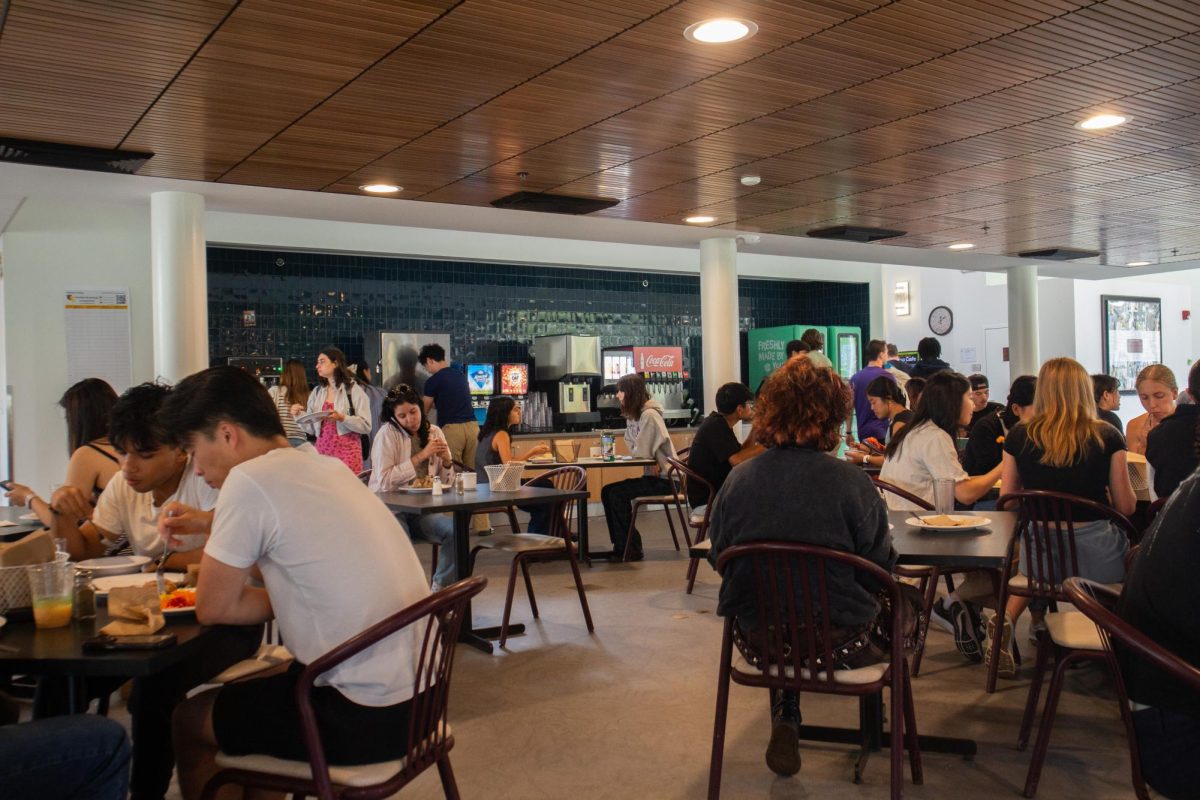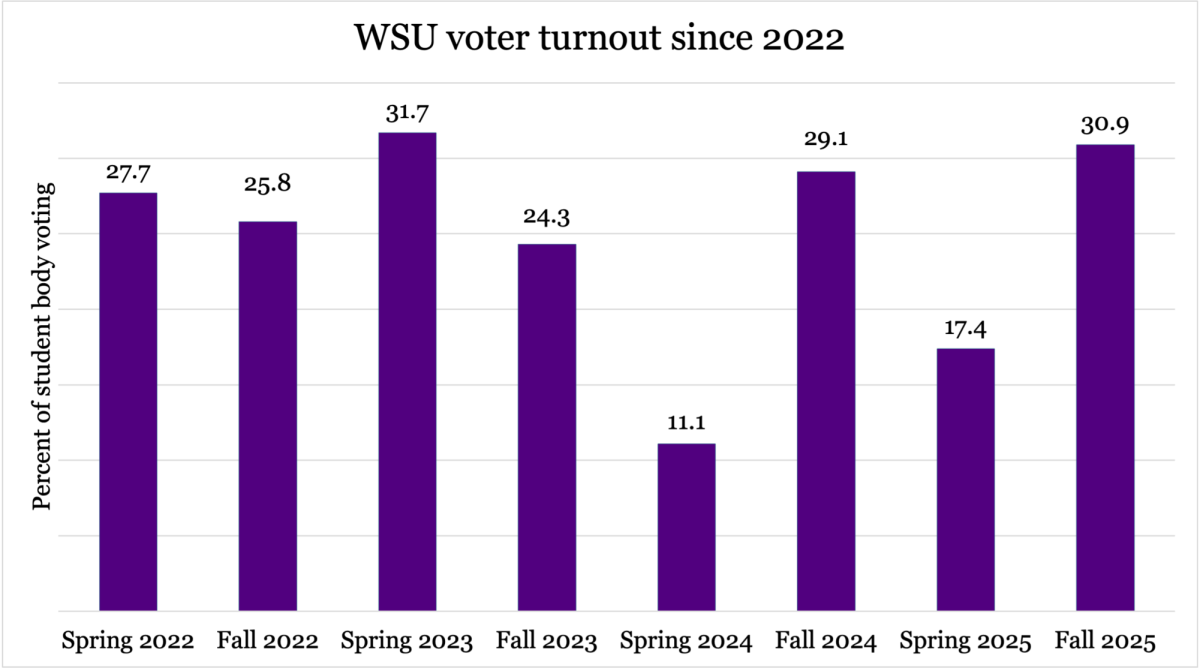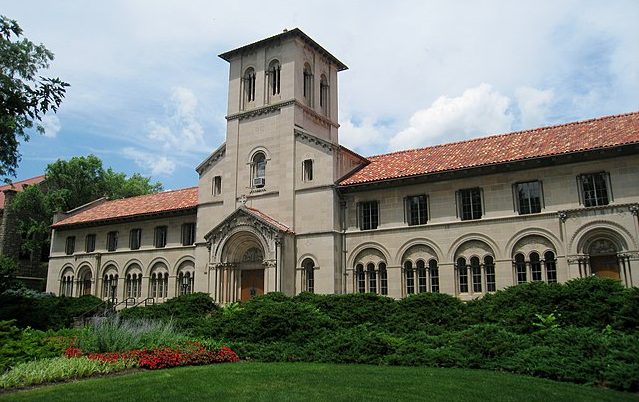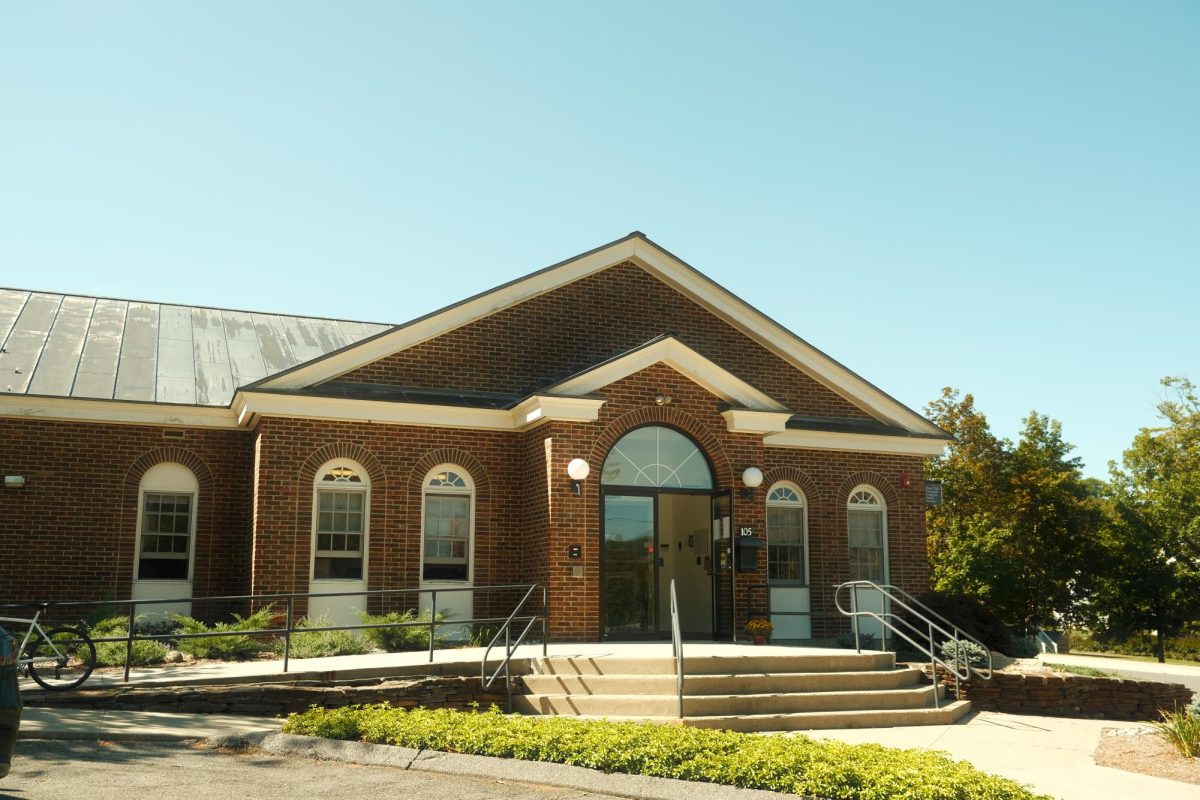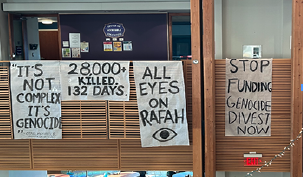
Approximately 40 students participated in a “die-in” protest at Paresky Center organized by Students for Justice in Palestine (SJP) on Feb. 16. In the middle of Baxter Hall, protestors laid on their backs under white sheets, simulating the posture of a corpse, while supporters and onlookers watched from the sides. According to SJP member Emily Salinas Romero ’25, the protest was prompted by opposition to Israeli strikes on the Palestinian city of Rafah, located on the southern edge of the Gaza strip where more than 1 million Palestinians have sought shelter.
Romero, who helped organize the die-in, said they felt that last week’s events necessitated a dramatic protest. “I could not stand by and see this devastating news when we all are witnesses and historical actors to genocide,” Romero wrote in an email to the Record. On Jan. 26, the United Nations (UN) ordered Israel to “take all measures within its power to prevent the commission of all acts within the scope” of the UN convention on genocide but stopped short of ordering a ceasefire. On Monday, the United States proposed a draft UN Security Council resolution that calls for a temporary ceasefire and opposes a ground offensive in Rafah by Israel.
“As students, we have a responsibility to demand the Williams College community to act against atrocities, especially since the College has financial ties related to Israel,” Romero continued, citing a Jews for Justice meeting in which the College’s administration said its investment in weapons manufacturing “is not zero.” Last week, SJP coordinated a walkout in front of Paresky and members of Jews for Justice (the organization formerly known as Jews for Ceasefire) met with the College’s Advisory Committee on Shareholder Responsibility about the College’s investment portfolio. Both groups intended its actions to call on the College to divest its endowment from weapons manufacturing.
“Die-in” protests have a long history at the College. For instance, on June 5, 2020, College students and Town residents laid across Field Park and the surrounding roundabout for eight minutes and 46 seconds to protest Minneapolis police officer Derek Chauvin’s killing of George Floyd.
“Actions are here to stay, and educating ourselves [is] here to stay until divestment, until a ceasefire, until there is no more apartheid, and no more occupation here and everywhere,” Romero wrote.









